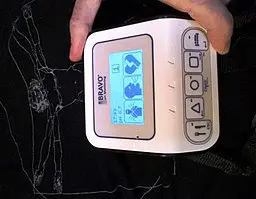New Study Supports BRAVO pH Probe Testing in Children with Autism
My thanks to Leonel Rodriguez, chief of pediatric gastroenterology, Yale Medicine, for shepherding this paper on Evaluation of Gastroesophageal Reflux Disease in Children on the Autism Spectrum: A Study Evaluating the Tolerance and Utility of the BRAVO Wireless pH Monitoring to publication in the Journal of Pediatric Gastroenterology and Nutrition. Although the paper includes the results from a limited number of patients, the study does show the success of using BRAVO pH probe testing in children with autism and what we can learn from this process. BRAVO pH probe testing allows us to look for episodes of reflux over a prolonged time; more than 48 hours in some individuals. Recording the reflux episodes, the family or caregivers also track meals and behavioral events. This has allowed us to look for a connection of reflux episodes and behaviors like crying, self-injury and sleep disorders. Doing this testing with a wireless device allows kids to go about their day without a tube coming out the nose. They can be eating and functioning as usual. The BRAVO pH probe testing has been a valuable tool especially, when we do not find esophagitis or other clear-cut diagnoses during regular examinations that provide a reason for pain or behaviors. I can confirm the paper’s findings, having conducted many BRAVO procedures in our population of children with autism. So pleased this paper supports this test as an effective diagnostic tool for individuals with autism. Review the abstract on the JPGN website by clicking on this link: https://journals.lww.com/jpgn/Abstract/2022/10000/Evaluation\_of\_Gastroesophageal\_Reflux\_Disease\_in.12.aspx
And, for other research publications I have been involved in, please visit the Research Publications section of this website.
